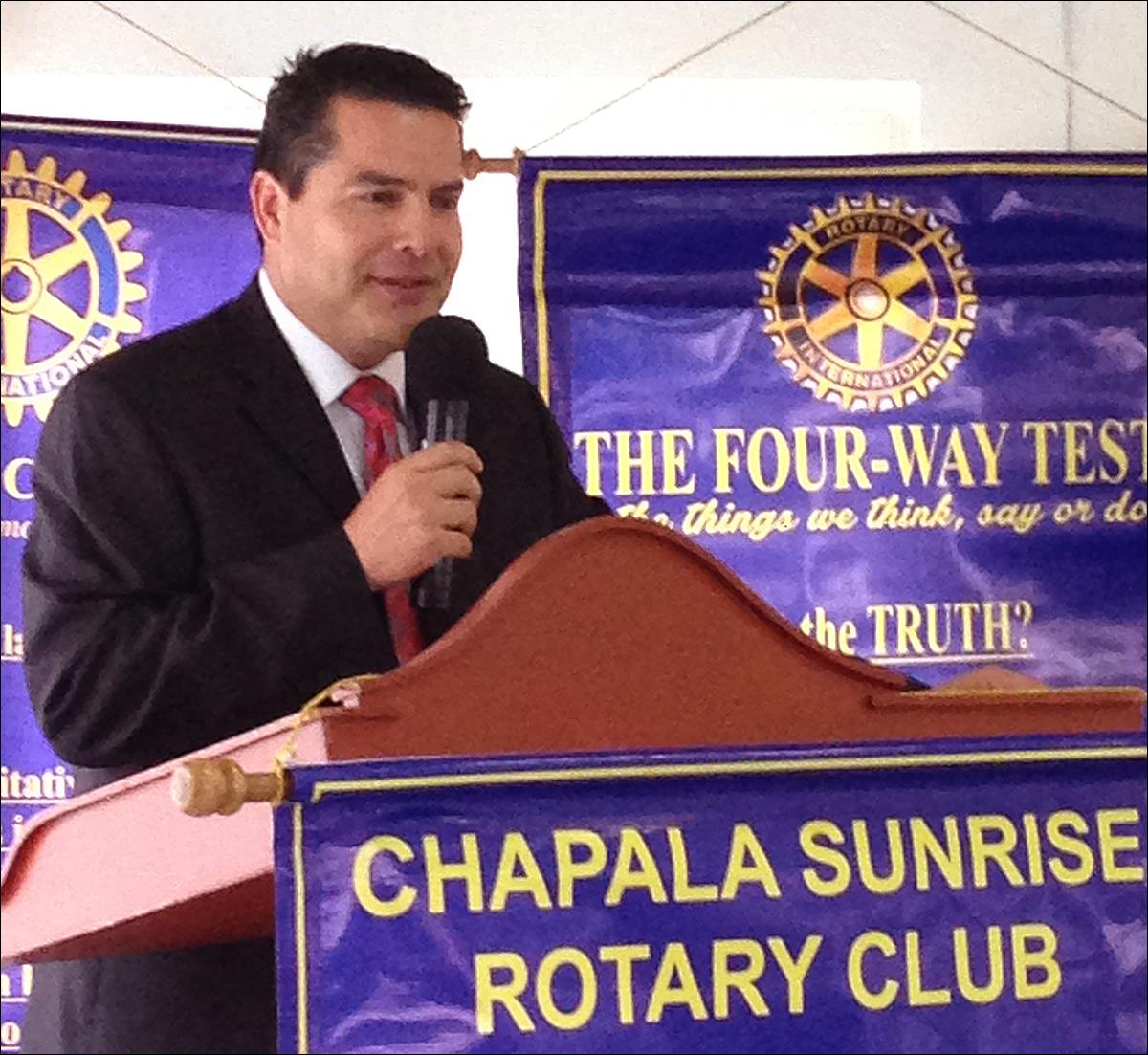Cesar Rubio, Manager, O&A Speaks on Post-Trump Mexican Economy at Nov. 10 CSRC Meeting
Posted on Nov 14, 2016

Cesar Rubio, the Manager of O&A in Ajijic (a subsidiary of O’Rourke Investments) spoke to the membership on Nov.10 about the likely effects to the Mexican economy after Donald Trump’s unexpected victory in the US Presidential election.
He began with an overview of the strength and weakness of the peso versus the US dollar since the election. Several weeks ago it was at 17.50 to the dollar, but today it has dropped to 20.78. Some have said that if Trump won it could go to 25, but that has not happened thus far. The night of the election the markets in the US and globally dropped sharply, but by morning they had already recovered and even grown a bit. Much depends on who he’ll appoint for Defence, State and Treasury in his new Cabinet as well as other senior staff positions, and how he translates campaign rhetoric into concrete actions when sworn in at the end of January.
Most analysts are expecting a much greater US deficit, and the Federal Reserve will probably raise lending rates. In addition, free trade between Canada, the US and Mexico under NAFTA may well be revised. Rubio reminded us that the Mexican legislature worked hard to change the Constitution to make NAFTA work. Any changes could push inflation in Mexico up past the current 3% rate. Rubio expects to see high volatility in the stock market over the coming months.
He feels that the fundamentals of the Mexico economy are good, but the peso could well go to 21. Though dominated by the GOP, the US Congress will likely recommend an alternative to building the US-Mexico wall, and Trump himself has downplayed it in recent interviews.
Mexico must work with the US, since 83% of its exports go to that country. If Mexico cannot get a fair deal under NAFTA it will have to look elsewhere for its export markets. A question was asked about the remittances from Mexicans working in the US sent to families back here, since Trump has indicated he might restrict these. Many American expats and snowbirds are concerned about a backlash to this here. Mexico receives 23 billion pesos in remittances from the Mexican nationals in the US each year.
Rubio did not think there would be any problems using our US and Canadian bank cards at ATMs here ongoing, and that elderly Americans will still come to Mexico to use nursing homes here that charge an average of $1,800 USD a month as compared to $5,000 or more in the US.
Much discussion and comment followed the speech, in part about the predicted influx of new people coming here (or to Canada) because of the election result, including workers who will bring needed skills.
